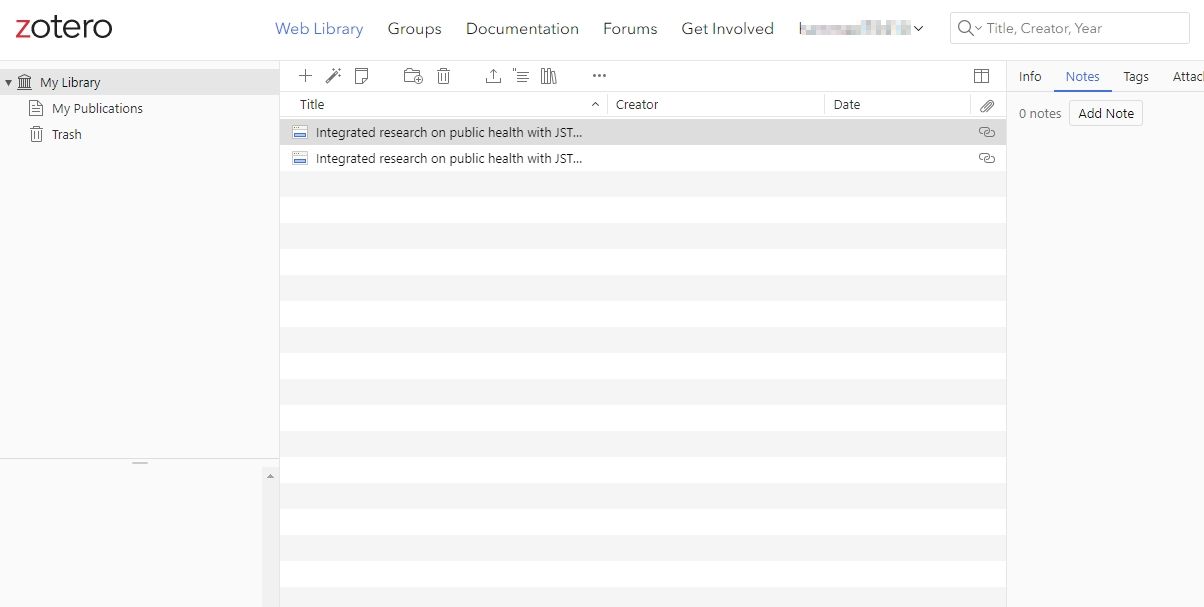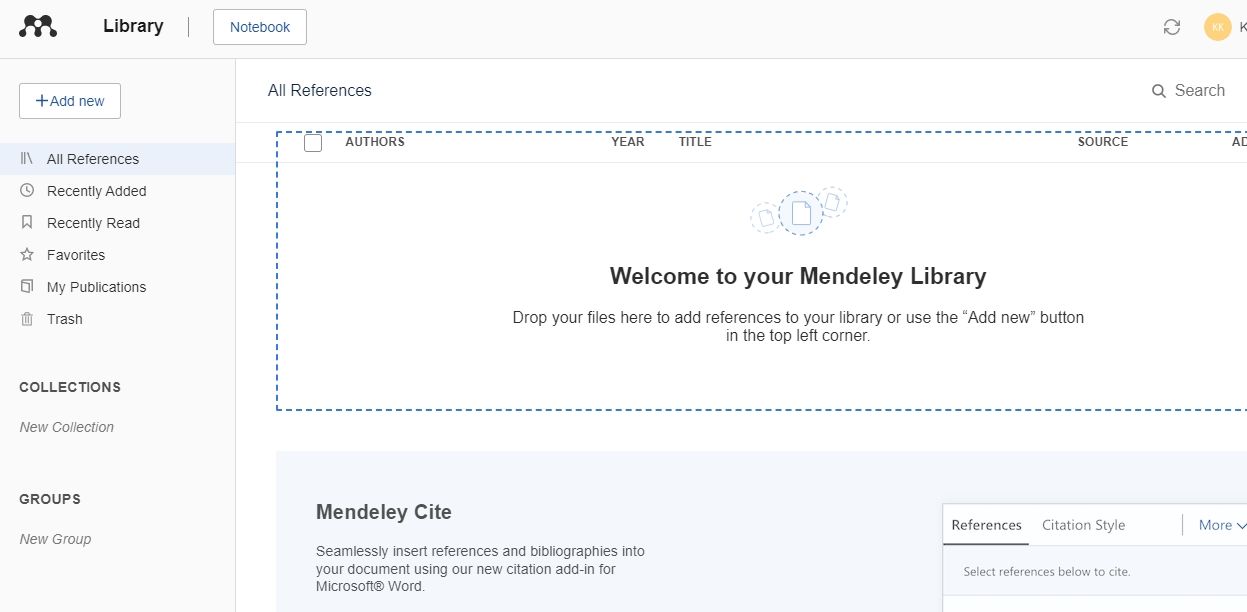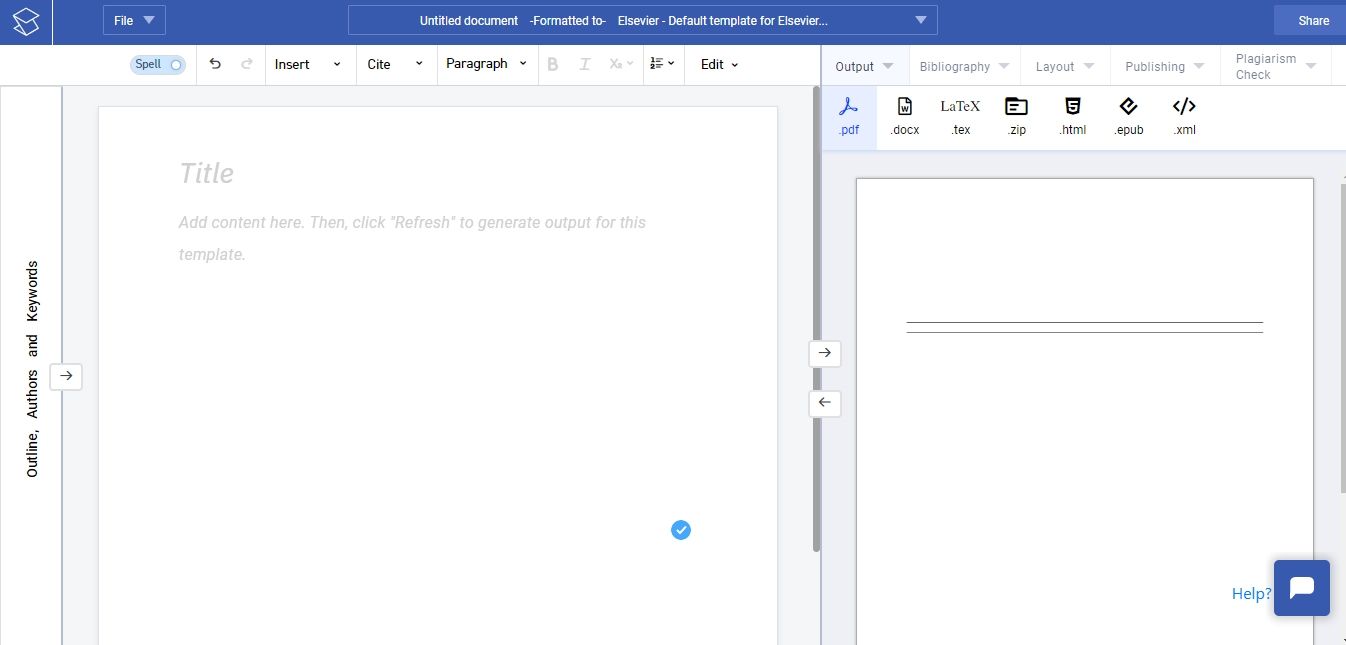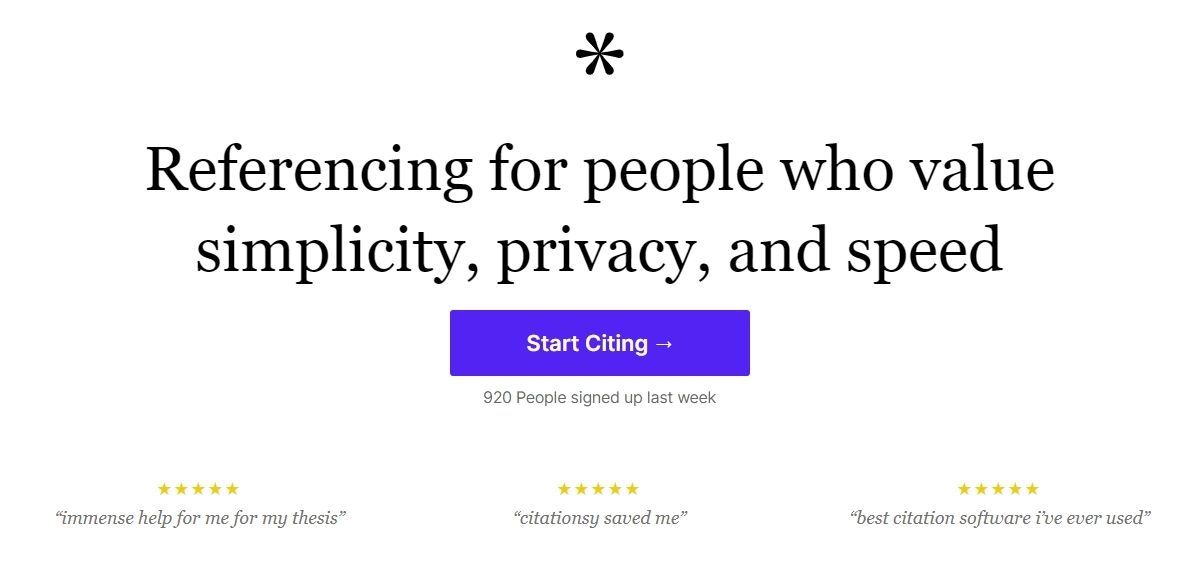Research is already time-intensive work. And little tasks like formatting or citing eat up more of your time. Luckily, you can automate these tedious tasks to a large extent and focus more on actual research.
Here, we’ve rounded up all the online tools researchers should have in their arsenal—from Google Scholar to Citationsy.
1. Google Scholar
Google Scholar is perhaps the most popular tool for finding scholarly literature on a plethora of topics. The search engine makes it simple for anyone to explore academic papers, theses, case law, books, etc.
On the search results page, you can view the author name, journal title, and total citations, which can help you gauge the credibility of the paper. Similarly, you can view related articles to explore the topic in detail.
Besides helping you find relevant information, Google Scholar lets you organize articles in your library. Create labels, sort by dates, and maintain a reading list to keep up with the latest research in your field.
You can also create your Google Scholar profile to show your work on Google Scholar and track citations to your work. Although it is an excellent tool, there are alternatives to Google Scholar in case it doesn’t work for you.
2. Zotero
Zotero describes itself as “your personal research assistant”, and we tend to agree. The tool cuts down on several monotonous tasks, like collecting research sources and adding citations.
If you have saved hundreds of information sources, finding the information you need can be difficult. Zotero solves this problem by letting you organize files into categories and assign keywords. With each saved item, you can add notes, attachments, and related material.
Zotero also simplifies the referencing by creating citations and bibliographies. Although the Zotero desktop client offers more features, the browser extension can save sources in the online library, letting you organize, tag, and cite them.
Best of all, it allows collaboration and sharing of documents. Zotero is a free, open-source project. However, you'll need to pay for storage if the 300 MB free plan doesn’t work for you.
Download: Zotero for Google Chrome | Microsoft Edge (Free, Paid)
3. ResearchGate
Although most researchers are already familiar with ResearchGate, the platform deserves a mention here. It’s a networking platform for researchers, having over 20 million accounts.
You can follow other researchers, share your work, and ask questions from domain experts. Similarly, you can showcase your research and projects to a wider audience and receive feedback. Based on your profile, ResearchGate can also help you connect with potential job opportunities.
With over 135 million pages of scholarly literature, ResearchGate helps you explore publications on various topics and follow specific projects/questions. Creating an account here is free. But, you’ll need to have an institutional email address or go through additional checks to ensure you’re a researcher.
4. Mendeley
Mendeley is much similar to Zotero, as it allows you to save papers, organize your library, and add citations in various styles.
What sets it apart though is that it has a user-friendly interface and a search engine for finding research papers. You can narrow the results down by year, journal title, author, and document type.
Directly from the search results page, you can add papers to your collection and view Open Access papers. Likewise, Mendeley Data lets you find research datasets.
Mendeley has a career section with thousands of listed vacancies—a great resource for finding technical jobs. It is available, both as a desktop application and a web-based tool (with browser extension). The free plan allows you to store 2 GB of data, after which you'll have to pay $4.99 per month or more, depending on your needs.
Download: Mendeley for Google Chrome | Firefox (Free, Paid)
5. SciSpace
If you spend hours on getting the formatting correct, SciSpace is for you. This awesome web-based editor makes it simple to write and format your research papers, thanks to the huge collection of templates.
From a single editor screen, you can write, format, add citations, check plagiarism, and insert tables. You can collaborate with other researchers directly using SciSpace.
Besides publishing tools, SciSpace can help you discover scholarly literature and has an index of over 270 million papers. So you can search for papers by topic, authors, journals, and institutions.
SciSpace has a free plan, albeit with quite limited features. So if you’re serious, you can subscribe to SciSpace for $20 per month.
6. Turnitin
Before submitting your research work, it’s necessary to run a plagiarism report and ensure the content is original.
Unless you've specific requirements about the software, Turnitin works great. It can detect plagiarism in academic work, thanks to its gigantic library of published papers.
The iThenticate service is specially designed for publishers. Using this tool, you can make adjustments to similarity criteria and view attached sources. For researchers who work in a group, it allows sharing folders.
Turnitin is a paid tool and only has an institutional license. So, you'll have to request quotes.
8. Hypothesis
Hypothesis is a Chrome extension that allows you to highlight documents and add notes. However, the main feature of this tool is the ability to collaborate seamlessly with your coworkers. You can add people to a group, share the document with them, and annotate documents.
Hypothesis is free to use. Although it looks like a simple extension, it’s one of the best tools to annotate web pages for research.
9. Citationsy
If you hate adding citations, try using Citationsy. The intuitive reference manager can add citations and references in various styles automatically. You've to only select the journal and article in the Citations section.
Whether you want to cite a journal article, book, website, or podcast, Citationsy makes it easy. You can share the bibliographies with your fellow researchers.
Citationsy costs $9.99 per month and $4.99 per month for students. It has browser extensions as well as mobile applications.
Simplify Your Research Workflow
We get it. Research ain’t an easy task. But perhaps what is more frustrating are all the little tasks that add little value. But thanks to these tools, you boost your productivity, collaborate seamlessly with your co-workers, and focus on the actual research.
In case you’ve just stepped into the field of research, there are tools to help you polish your skills as well.








